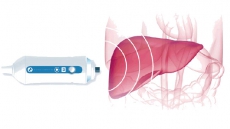Mutation of a single gene blocks sweat production leading to an increased risk of hyperthermia, also known as heatstroke, said a study.
The gene called ITPR2 controls a basic cellular process in sweat glands, promoting the release of calcium necessary for normal sweat production, and its loss results in impaired sweat secretion, found the team.
ITPR2 contains IP3 receptor type 2 (IP3R2) protein that forms a channel in the membrane of the endoplasmic reticulum, an organelle within cells that stores an ion called calcium, found the study.
"This is the first report of IP3 receptor type 2 mutation in human disease. The surprise was that a point mutation, not a large deletion was enough to cause the human disorder," said Katsuhiko Mikoshiba, molecular cell biologist from the RIKEN Brain Science Institute in Japan.
The group of scientists led by Niklas Dahl, genetics expert at the Uppsala University, in Sweden studied rare single-gene diseases for identifying causative genes, thereby helping in the development of diagnostic or treatment tools.
For their study, the team worked with collaborators in Pakistan, where they identified a family of many children who could not sweat, a rare condition called anhidrosis.
Analysis of the patients' genomes revealed a mutation in a gene called ITPR2.
Opening of the IP3R channel releases calcium, triggering essential cell behaviour such as movement and secretion, noted the study.
A single nucleotide change in the DNA code resulted in a change in protein structure impeding the ability of the channel to release calcium, found the team.
Efforts to develop drugs for regulating the IP3R are underway.
The study appeared in the Journal of Clinical Investigation.





